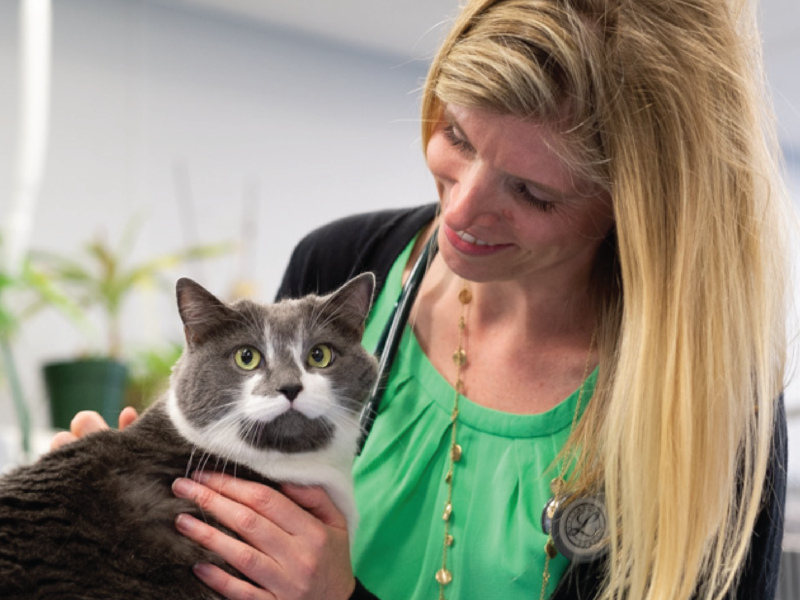Glossary of Cancer Treatment Options for Pets
The following list covers some of the cancer treatment options our board-certified veterinary oncologists may offer. This list is not exhaustive of every treatment option available and each of our hospitals may not have every option listed below. To learn more about any one of these, please click on the links.
Please visit our Glossary of Cancers in Pets blog to learn more about specific types of cancers and their treatment options.
Chemotherapy
- Chemotherapy FAQs– what is chemotherapy, how does it work, and more answers for pet owners.
- Chemotherapy- What to Expect Before, During, & After– what happens at each appointment, keeping you and your family safe after each treatment, and more answers for pet owners.
- Chemotherapy for Canine Lymphoma– several types of chemotherapy can be used to successfully treat lymphoma.
- Electrochemotherapy– a local treatment for cancer using a combination of chemotherapy and electric pulse therapy.
- Metronomic Chemotherapy– a low dose chemotherapy treatment option for dogs and cats with a variety of cancers.
Medications
- NSAIDs– in oncology patients, NSAIDs are often used to relieve pain and decrease inflammation associated with the tumor and/or disease or as a cancer treatment.
- Palladia– a drug used as an anti-cancer agent in dogs for the management of mast cell tumor.
- Steroids– commonly used in the treatment protocols of certain cancers and to help increase your pets’ appetite and aid in reducing inflammation of various tumor types.
Nutritional Management
- Nutrition (Canine)– an important part of ensuring your dog has a good quality of life during and after receiving cancer therapy.
- Nutrition (Feline)– an important part of ensuring your cat has a good quality of life during and after receiving cancer therapy.
Radiation
- Radiation Therapy– treatment using high-energy radiation from x-rays, gamma rays, electrons, neutrons, protons, or other sources to kill cancer cells and shrink tumors.
- Radiation Therapy for Osteosarcoma– nonsurgical alternative methods for limb salvage.
- Strontium-90 Plesiotherapy – The Sr-90 applicator is a specialized instrument that can safely deliver high doses of radiation to small/superficial tumors. The radiation that comes from Sr-90 does not penetrate beyond several mm below the skin surface.
Ethos Discovery, a 501(c)3 nonprofit, is currently conducting studies and research to improve health outcomes for animals and humans with complex medical problems. Click here to learn more.
